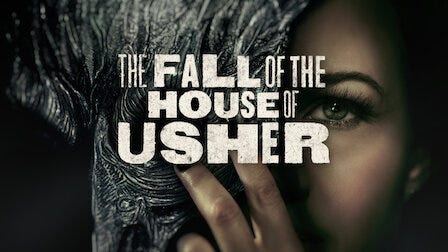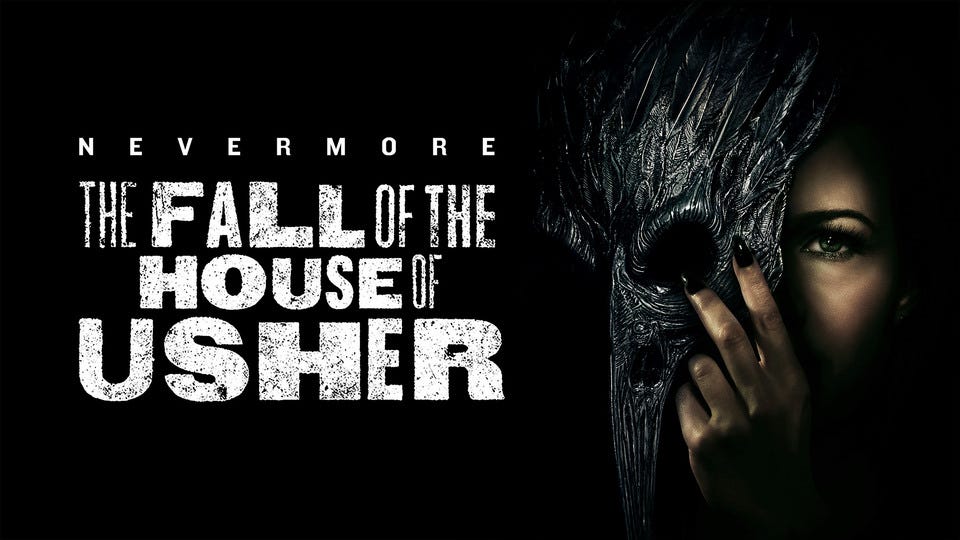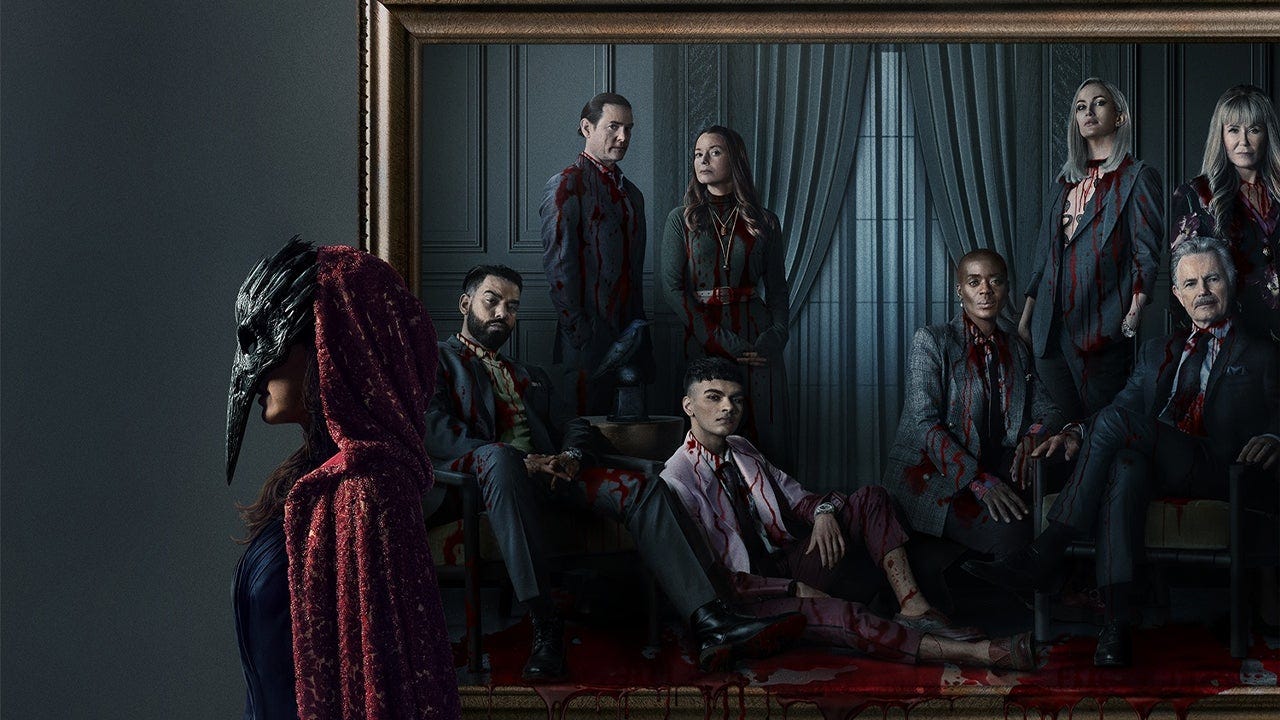Edgar Allan Poe is one of my favorite writers, which is why I was excited to see how his stories were brought to life. Unfortunately, Mike Flanagan’s take on Poe did not work for me. The show never fully commits to being a gothic horror story, instead being yet another “eat the rich” narrative, and a kinda boring one at that.
Spoilers ahead.
Summary: A loose adaptation of the short story by Edgar Allan Poe of the same title, the show also incorporates a large selection of Poe's stories into a single narrative, that of the fall of the rich Usher family, who own a corrupt and unethical pharmaceutical empire. Each episode details the ways that the members of the family die away, as told by Roderick Usher, the patriarch of the family, to Auguste Dupin, the attorney who tried to bring the Ushers to justice.
The family.
Each episode is titled after one of Poe’s stories (except for the first one), and the plot of that story is loosely adapted to fit the larger narrative. The Usher kids die one by one, and the way the episode goes is very easy to predict if you know the story it is adapting. Here comes the main problem with the show: the format. The episodic formula makes the characters very two-dimensional since the other siblings barely appear in the plot outside their focus episode, and they have almost no bonds between them or with their father. The lack of interactions between the Ushers make it harder to care for them.
Then, there is the matter of their morality. As in every other “eat the rich” story, we are presented with a family that built their empire through unethical means, in this case by selling opiates. As a whole, they are undeniably evil — they don’t care about the victims of Ligodon; they think they are above the law; they are irresponsible and corrupt. But individually, they are boring. We are told that Perry was borderline insane and that he lived in extreme decadence, a modern Caligula. The worst we see him do is throw an orgy to blackmail people, and his behavior, while reckless, is not nearly as off the rails as we are *told*. Basically, while we know the Ushers as a collective are bad people, individually they are very plain. Leo’s greatest crime is being a cheater. Tamerlane is mean to her husband and to Roderick’s wife. Perry is an idiot. The only interesting Usher kids are Victorine, who lies to her patient’s face with no guilt, and Frederick, who becomes an abusive husband and father very quickly. And the “descent to madness” of these two is almost comical to watch.
The only real relationship in the show is between Roderick and Madeline. They are also the most complex characters in the show. Madeline specifically is interesting in that she is a white woman who uses misogyny as an excuse for how awful she is, justifying her actions by victimizing herself. Her rant about women’s rights in the final episode is one of the best scenes in the show. On the surface, she makes sense, but it’s clear that she’s only avoiding responsibility for Ligodon and that she doesn’t actually care about other women, which Roderick picks up on because he knows her that well. Madeline, despite everything she says, only cares about sexism insofar as it affects her.
The (lack of) horror.
It is usually assumed that all the Gothic novels are much the same, and that the form is defined by the presence of some stock devices. 1
Edgar Allan Poe is shaking with rage in the afterlife seeing his stories reduced to gore and jump scares.
There is a fantastic atmosphere in the scenes of Roderick and Dupin in the old Usher house, but other than that, the tone of the show does not match Poe’s stories. The show doesn’t know what it wants to be — rich people satire, sentimental tragedy, gothic horror, or a deep commentary on society. It ends up being mediocre at all these things.
Gothic is more than haunted houses and dark spaces. The ambiguity and the lack of clear answers are central aspects of good Gothic writing, but the show always goes out of its way to explain itself. The final scenes hit you over the head with the “meaning” of the show. Dupin’s final line is the most extreme example of this — in case you didn’t get it that family is more important than money, here is Dupin telling you that family is more important than money. And the bit where Verna puts a trinket on top of each grave is laughably unnecessary. Then, to wrap everything up, we get a short epilogue showing how things turned out for the survivors, because everything needs to be neatly explained.
The show loves telling you how to feel. There’s no room for wondering or imagination, it explains all that happens to you and what exactly is the issue of each character.
Gothic writing, the product of serious fancy, has no such answers and can only leave the "opposites" contradictory and paradoxical. [...] Gothic can find only unresolvable moral and emotional ambiguity.
Final thoughts.
Overall, you are better off reading the original Poe stories if you are looking for genuine horror and watching House of the Dragon or Succession if you are looking for family drama and awful rich people. If you are not familiar with Poe, you may enjoy it more. It’s entertaining enough, and there are a couple good moments, especially between Roderick and Madeline, and the cinematography and performances deserve to be praised. Basically, it’s not good, but it’s not terrible either, so I’m rating it 2.5/5.
“Gothic versus Romantic: A Revaluation of the Gothic Novel” by Robert D. Hume.






